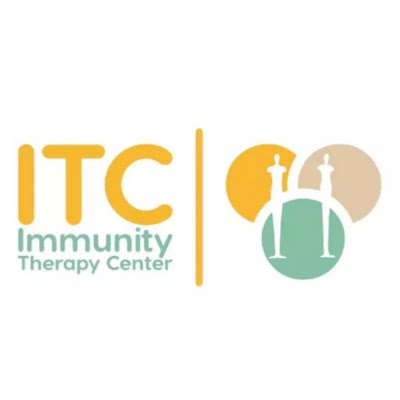Bladder cancer, a common form of cancer that affects the bladder’s lining, can significantly impact a person’s quality of life. Its treatment often involves a combination of advanced medical techniques, a multidisciplinary approach, and personalized care. With the rising cost of healthcare in many parts of the world, patients are increasingly exploring international options for treatment. Mexico has emerged as a popular destination for cancer treatment, including bladder cancer, due to its high-quality medical services, experienced specialists, and affordable care. This comprehensive guide will explore the key aspects of bladder cancer treatment in Mexico, from diagnosis to recovery, and highlight why Mexico is an attractive option for international patients seeking effective, accessible care.
Table of Contents
Cost of Bladder Cancer Treatment in Mexico
One of the primary reasons patients choose Mexico for bladder cancer treatment is the significant cost savings. The following is a breakdown of the approximate costs for common bladder cancer treatments in Mexico:
| Procedure | Cost in Mexico |
|---|---|
| TURBT | $3,000 – $5,000 |
| Partial Cystectomy | $7,000 – $10,000 |
| Radical Cystectomy | $10,000 – $15,000 |
| Chemotherapy | $1,000 – $3,000 per session |
| Radiation Therapy | $5,000 – $8,000 for a full course |
| Immunotherapy | $2,000 – $5,000 per session |
These prices are significantly lower than in the United States and other countries, where similar treatments can cost two to three times more.
Leading Cancer Centers for Bladder Cancer Treatment in Mexico
Mexico is home to several renowned cancer centers specializing in advanced treatments for bladder cancer. Two such centers that stand out for their expertise, innovation, and comprehensive care are the Immunity Therapy Center in Tijuana and the MexStemCells Clinic in Mexico City.
1. Immunity Therapy Center, Tijuana
The Immunity Therapy Center (ITC) in Tijuana is a leading cancer treatment facility that focuses on integrative and alternative cancer therapies, combining conventional treatments with cutting-edge immunotherapy approaches. ITC’s philosophy is to offer personalized cancer treatments that not only target the disease but also support the patient’s overall health and immune system.

Key Features:
- Immunotherapy Expertise: ITC is known for its innovative use of immunotherapy treatments, which aim to strengthen the body’s immune system to better fight cancer cells. For bladder cancer patients, ITC offers therapies such as dendritic cell therapy, natural killer (NK) cell therapy, and immune checkpoint inhibitors.
- Integrative Treatment Plans: ITC develops customized treatment protocols that combine traditional treatments like chemotherapy and radiation with non-toxic, supportive therapies, including vitamin infusions, ozone therapy, and hyperbaric oxygen therapy. This holistic approach is designed to reduce the side effects of conventional treatments while maximizing their effectiveness.
- Personalized Care: Each patient at ITC receives a tailored treatment plan based on their specific cancer diagnosis, stage, and health condition. Bladder cancer patients benefit from the close monitoring and adjustments to their treatment regimen, ensuring the best possible outcomes.
- International Patient Support: The center is highly experienced in treating international patients and offers comprehensive services to assist with travel, accommodations, and logistics. English-speaking staff and patient coordinators help ensure a seamless experience for those traveling to Tijuana for treatment.
Why Choose ITC for Bladder Cancer?
Patients seeking an alternative or integrative approach to bladder cancer treatment will find Immunity Therapy Center’s focus on immunotherapy and holistic care highly appealing. Its success in treating various cancers, including bladder cancer, through non-invasive and immune-boosting therapies makes it a standout facility in Mexico.
2. MexStemCells Clinic, Mexico City
The MexStemCells Clinic, located in Mexico City, is a cutting-edge medical facility specializing in stem cell therapies and regenerative medicine. While the clinic is widely known for its expertise in treating degenerative conditions, it has also made significant strides in cancer treatment, including bladder cancer, by leveraging the power of stem cells to promote healing and recovery.

Key Features:
- Stem Cell Therapy: MexStemCells Clinic offers advanced stem cell treatments for cancer patients, including those with bladder cancer. Stem cell therapy can be used to support recovery after chemotherapy or radiation, regenerate damaged tissues, and enhance the patient’s immune response.
- Regenerative Medicine: The clinic’s focus on regenerative medicine allows bladder cancer patients to benefit from therapies that promote the repair and regeneration of healthy tissues, which is particularly important after invasive treatments like surgery or radiation therapy.
- Cutting-Edge Technology: MexStemCells Clinic uses state-of-the-art equipment and medical technology to deliver stem cell therapies and other advanced treatments. The clinic’s research-driven approach ensures that patients receive the most effective and up-to-date therapies available.
- Comprehensive Cancer Care: In addition to stem cell therapy, MexStemCells Clinic offers a range of cancer treatments, including targeted therapies, immune system support, and integrative care that addresses the patient’s overall well-being.
Why Choose MexStemCells Clinic for Bladder Cancer?
For bladder cancer patients looking for regenerative medicine options and cutting-edge treatments, MexStemCells Clinic provides innovative therapies that can enhance the body’s natural healing processes. The clinic’s focus on stem cell therapy makes it a unique option for patients seeking to complement traditional cancer treatments with regenerative care.
Understanding Bladder Cancer
Bladder cancer occurs when abnormal cells in the bladder grow uncontrollably, forming a tumor. There are different types of bladder cancer, with the most common being urothelial carcinoma (also known as transitional cell carcinoma). This type begins in the urothelial cells that line the inside of the bladder. Other types include squamous cell carcinoma and adenocarcinoma, which are less common but still serious.
Stages of Bladder Cancer
Bladder cancer is typically classified into stages based on the extent of the disease:
| Stage | Description |
|---|---|
| Stage 0 | Cancer is found only on the inner lining of the bladder. |
| Stage 1 | Cancer has spread beyond the bladder lining but hasn’t reached the muscle layer. |
| Stage 2 | Cancer has grown into the muscle layer. |
| Stage 3 | Cancer has spread to surrounding tissues outside the bladder. |
| Stage 4 | Cancer has spread to distant organs or lymph nodes. |
The treatment approach varies depending on the stage of the cancer, with early-stage cancers often requiring less invasive treatments compared to advanced stages.
Why Choose Mexico for Bladder Cancer Treatment?
Mexico has become a leading destination for medical tourism due to its state-of-the-art medical facilities, highly qualified oncologists, and affordable healthcare costs. The country’s healthcare system is internationally recognized for offering quality care at a fraction of the cost found in countries like the United States and Canada. Here are some reasons why Mexico stands out as a top choice for bladder cancer treatment:
- Experienced Oncologists and Urologists: Mexico is home to many internationally trained and board-certified oncologists and urologists who specialize in bladder cancer. These specialists are experienced in performing advanced surgeries, administering cutting-edge therapies, and providing comprehensive patient care.
- World-Class Hospitals: Many hospitals and cancer centers in Mexico are accredited by international healthcare bodies such as the Joint Commission International (JCI), ensuring they meet global standards of care. These hospitals are equipped with the latest medical technologies, ensuring patients receive the best possible treatments.
- Affordable Care: One of the most significant benefits of seeking treatment in Mexico is the affordability. The cost of bladder cancer treatment in Mexico can be up to 50-70% lower than in the U.S. without compromising on quality. This includes lower costs for surgery, chemotherapy, radiation therapy, and follow-up care.
- Comprehensive Care: Mexico offers a holistic approach to cancer treatment, combining medical interventions with supportive therapies such as nutritional counseling, emotional support, and pain management. This comprehensive care ensures that patients’ physical, emotional, and mental needs are met throughout the treatment process.
- Convenient Location: For patients traveling from North America, Mexico is an ideal location due to its proximity. Many of Mexico’s top cancer centers are located in cities with easy access to international airports, making travel convenient and affordable.
Types of Bladder Cancer Treatment in Mexico
Bladder cancer treatment in Mexico is tailored to each patient’s specific condition, stage of cancer, and overall health. The following are the main types of treatments offered:
1. Surgery
Surgery is one of the most common treatments for bladder cancer, particularly in early-stage disease. Mexico offers various surgical options, including minimally invasive techniques that reduce recovery time and complications.
- Transurethral Resection of Bladder Tumor (TURBT): This is the most common procedure for early-stage bladder cancer. During TURBT, a surgeon inserts a cystoscope through the urethra to remove the cancerous tissue. It is a minimally invasive procedure that does not require external incisions.
- Partial Cystectomy: In cases where the tumor is localized, a partial cystectomy may be performed, where only a portion of the bladder is removed. This procedure aims to preserve as much of the bladder as possible.
- Radical Cystectomy: For more advanced cancers, a radical cystectomy may be necessary. This involves the complete removal of the bladder and nearby lymph nodes. In men, the prostate may also be removed, while in women, the uterus, ovaries, and part of the vagina may be removed. After a radical cystectomy, reconstructive surgery may be needed to create a new way for urine to leave the body, such as a urostomy or neobladder.
Mexico’s leading cancer centers are well-equipped to perform these surgeries using advanced techniques, including robotic-assisted surgery, which offers greater precision and faster recovery.
2. Chemotherapy
Chemotherapy is a key treatment option for bladder cancer, especially in advanced stages or when cancer has spread beyond the bladder. In Mexico, chemotherapy is often used in combination with other treatments such as surgery or radiation therapy to enhance its effectiveness.
- Intravesical Chemotherapy: For early-stage bladder cancer, chemotherapy drugs may be directly administered into the bladder through a catheter (intravesical chemotherapy). This treatment targets cancer cells in the bladder without affecting other parts of the body, reducing side effects.
- Systemic Chemotherapy: In more advanced cases, systemic chemotherapy, where drugs are administered intravenously or orally, may be used to kill cancer cells throughout the body. This type of chemotherapy is often given before or after surgery to shrink tumors or prevent recurrence.
Mexico’s cancer centers offer personalized chemotherapy regimens tailored to the specific needs of each patient, with a focus on minimizing side effects and improving quality of life.
3. Radiation Therapy
Radiation therapy uses high-energy beams to destroy cancer cells. In Mexico, radiation therapy is commonly used in combination with surgery or chemotherapy to treat bladder cancer, particularly in patients who are not candidates for surgery.
- External Beam Radiation Therapy (EBRT): This is the most common form of radiation therapy for bladder cancer. In EBRT, a machine outside the body delivers high-energy radiation to the tumor. It is often used in combination with chemotherapy to increase its effectiveness.
- Internal Radiation Therapy (Brachytherapy): In some cases, internal radiation therapy may be used. This involves placing a radioactive source directly inside or near the tumor. Brachytherapy delivers a higher dose of radiation to the cancerous tissue while minimizing exposure to surrounding healthy tissues.
Mexico’s radiation oncology centers are equipped with the latest technology, including intensity-modulated radiation therapy (IMRT) and image-guided radiation therapy (IGRT), which allow for precise targeting of the tumor while sparing healthy tissue.
4. Immunotherapy
Immunotherapy is a groundbreaking treatment that helps the body’s immune system fight cancer. Mexico offers several forms of immunotherapy for bladder cancer, including:
- Immune Checkpoint Inhibitors: Drugs like pembrolizumab (Keytruda) and atezolizumab (Tecentriq) are used to block proteins that prevent the immune system from attacking cancer cells. These drugs have shown promise in treating advanced bladder cancer, particularly in patients who are not responding to chemotherapy.
- Bacillus Calmette-Guerin (BCG): This is a type of intravesical immunotherapy used to treat early-stage bladder cancer. BCG is a weakened bacterium that stimulates the immune system to attack cancer cells. It is often used after TURBT to reduce the risk of cancer recurrence.
Immunotherapy is a rapidly evolving field, and many cancer centers in Mexico are at the forefront of clinical trials and new treatment options.
5. Targeted Therapy
Targeted therapy involves drugs that specifically target the molecular changes that drive cancer growth. In Mexico, targeted therapies are used for certain types of bladder cancer, particularly in cases where other treatments have not been effective.
- FGFR Inhibitors: Drugs like erdafitinib (Balversa) target genetic mutations in the FGFR gene, which are present in some bladder cancers. This treatment is used in patients with advanced bladder cancer who have specific genetic mutations.
Mexico’s cancer centers offer genetic testing to identify patients who may benefit from targeted therapy, ensuring that treatment is personalized to the unique characteristics of the cancer.
Diagnostic and Support Services
Bladder cancer treatment in Mexico begins with a thorough diagnostic process to determine the stage and extent of the disease. The following diagnostic tools are commonly used:
| Test | Description |
|---|---|
| Cystoscopy | A cystoscope is inserted through the urethra to examine the inside of the bladder and take tissue samples (biopsy) if needed. |
| Imaging Tests | Includes CT scans, MRI, PET scans, and ultrasounds to detect the spread of cancer and guide treatment planning. |
| Urine Cytology | A sample of urine is analyzed for the presence of cancer cells. |
In addition to diagnostic services, Mexico offers a wide range of support services to ensure that patients receive comprehensive care throughout their treatment journey:
| Service | Description |
|---|---|
| Patient Navigators | Guides patients through the treatment process, helps coordinate appointments, and manages logistics such as travel and accommodation. |
| Nutritional Counseling | Provides advice on maintaining proper nutrition to support strength and energy levels during treatment. |
| Psychological Support | Offers access to counselors, support groups, and therapy to help patients and families cope with emotional challenges. |
Preparing for Treatment in Mexico
If you’re considering traveling to Mexico for bladder cancer treatment, here are a few important steps to ensure a smooth experience:
- Research Hospitals and Specialists: Choose a hospital or clinic that specializes in bladder cancer treatment and has a strong reputation for quality care.
- Obtain Medical Records: Bring copies of your medical records, including imaging scans, pathology reports, and treatment history.
- Plan Your Stay: Coordinate with the hospital’s international patient department to arrange for accommodations, transportation, and any necessary pre-treatment consultations.
- Explore Financing Options: Some hospitals in Mexico offer financing plans or work with international insurance providers to help cover the cost of treatment.
FAQs for Bladder Cancer Treatment in Mexico
Are the doctors and hospitals in Mexico qualified to treat bladder cancer?
Yes, many hospitals and cancer centers in Mexico are internationally accredited and staffed by highly qualified, board-certified oncologists and urologists. Doctors often receive training in top medical institutions in the U.S., Europe, and Mexico. Mexico’s leading cancer treatment centers, such as Immunity Therapy Center and MexStemCells Clinic, offer state-of-the-art technology and a multidisciplinary approach to cancer care.
Can I get immunotherapy for bladder cancer in Mexico?
Yes, Mexico offers several immunotherapy options for bladder cancer, especially for advanced stages. Clinics like Immunity Therapy Center specialize in immune-based therapies, such as dendritic cell therapy, natural killer (NK) cell therapy, and immune checkpoint inhibitors like pembrolizumab (Keytruda). Immunotherapy works by boosting the body’s immune system to help fight the cancer more effectively, and Mexico has advanced facilities to provide this treatment.
What makes stem cell therapy a viable option for bladder cancer treatment in Mexico?
Stem cell therapy, available at clinics like MexStemCells, is used to enhance the body’s ability to heal and regenerate. While stem cell therapy may not directly treat cancer, it supports recovery after invasive treatments like surgery, chemotherapy, or radiation. It helps regenerate damaged tissues and boosts the immune system, which can be critical in improving the patient’s quality of life post-treatment.
How can I travel to Mexico for bladder cancer treatment?
Traveling to Mexico for medical treatment is relatively simple, especially from North America. Mexico has well-connected international airports in major cities such as Mexico City, Tijuana, Monterrey, and Cancun. Many hospitals and cancer centers, like Immunity Therapy Center, offer patient coordinators who can assist with travel logistics, accommodations, and appointments.







